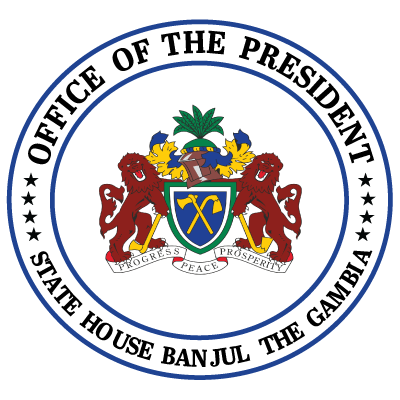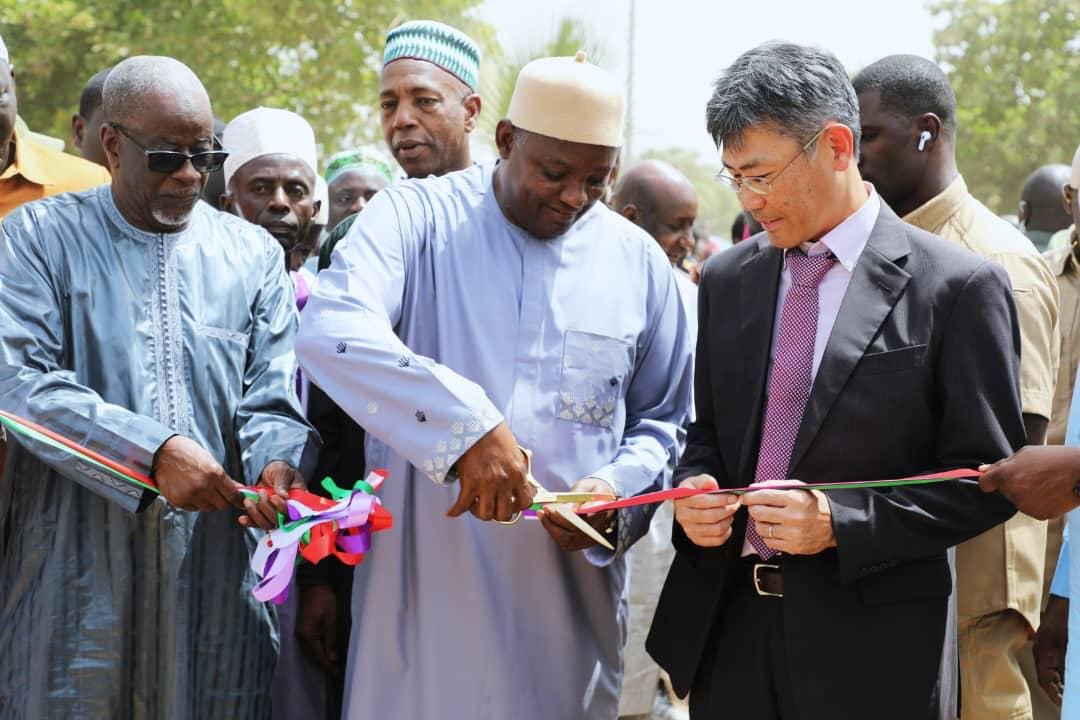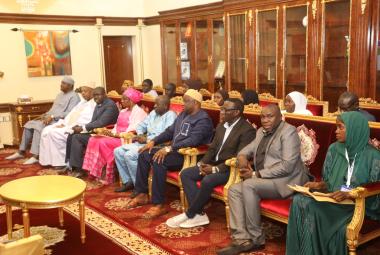Honourable Cabinet Ministers,
Honourable National Assembly Members,
Senior Government Officials,
Regional and Local Authorities,
National Project Coordination Team,
The Consultant, Japan Techno Company Limited,
The Contractor, Nissako Company Limited,
Distinguished Ladies and Gentlemen,
Members of the Media,
I am sure you are all as happy as I am to attend the inaugural ceremony of this magnificent solar-powered water system constructed to serve the residents of Faraba Sutu in Kombo East. It is certainly my honour to preside over the formal handing over of the facilities to the intended beneficiaries.
In welcoming you personally to the event, I extend sincere appreciation and gratitude to the Government and People of the Kingdom of Japan for funding this significant project.
It is a project that follows similar systems constructed in other parts of the country. Besides providing clean drinking water, economically, such water systems reduce pressure on our national health budget and fuel importation costs.
Ladies and gentlemen, using solar-powered energy conforms with our National Climate Change Policy, which targets reducing emission of Green House Gases. As such, this Project will contribute to our efforts aimed at achieving the Sustainable Development Goals (SDGs) in various ways.
The project components include reducing hunger, enhancing good health and well-being, improving the policy environment to create equal opportunities for children and women, as well as ensuring access to clean water and proper sanitation facilities.
Distinguished Guests,
Ladies and Gentlemen,
We are aware of the rapid population growth and its impact on the demand and supply rates for safe drinking water. My administration’s collaboration with partners to construct water supply facilities country-wide is, therefore, strategic.
As contained in our National Development Plan - 2023-2027, our goal is to increase access to affordable and clean energy and achieve the Climate Action objectives. Thus, under the JICA Four Project, 20 solar-powered water supply systems now provide clean water to over 50, 000 people.
The installation of 494 tap points, 30 boreholes, 30 solar water pumping systems, and 20 water tanks, with storage capacity ranging from 30,000 litres to 140,000 litres, are meant to increase access to clean water. In all, the solar-powered water systems will provide portable water to more than 68 villages.
Distinguished Guests,
Ladies and Gentlemen,
Through the support of the African Development Bank Group (AfDB), there are plans to construct and install 144 large and mini solar-powered piped-water supply systems in five administrative regions of the country. They are to provide quality drinking water to additional 400, 000 rural dwellers. Our commitment, therefore, to ensuring that rural Gambians have safe clean water is quite evident.
In addition, with funding from the AfDB, 65 out of the 110 boreholes drilled since August 2022 will be upgraded to full solar-powered water supply systems.
I am pleased to state further that work started on those 65 sites in September 2023, and we hope they will be ready for use by October 2024.
On universal and equitable access to safe and affordable drinking water, which is an aspect of the Recovery-Focused National Development Plan, Government will deepen collaboration with partners to promote use of renewable energy in the country.
A major challenge in the water sector, however, is sustaining proper management of our water resources and water supply infrastructure.
The solution lies in maintaining a balance between consumer demand and sustainable water supply schemes, managed by the communities themselves, where applicable.
Ladies and Gentlemen,
We must recognise that water supply cannot be free. As a result, consumers should not expect the Government to construct such facilities and meet the cost of pumping and distributing water from our national budget. The norm is that, in these systems, tap points have water meters and payments are determined by consumption tariffs. This tends to guarantee a sustainability mechanism for the facilities.
Distinguished guests, ladies and gentlemen, regular rural water supply leads to household water security, but it requires collective action to protect and preserve our water resources. Together, we should use water as a scarce economic resource and ensure its equitable supply.
I assure you that my government will continue to cooperate with the Government and People of Japan and all our partners so that Gambians enjoy the benefits of clean drinking water.
We will steadily pursue this objective in accordance with our Recovery-Focused National Development Plan and the SDGs.
Attaining the targets in those instruments will surely facilitate the broader goal of poverty alleviation; therefore, let us work collectively to achieve them in the interest of the people.
With this, I declare the new water systems inaugurated officially for public use.
Thank you for your attention.







